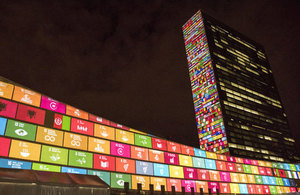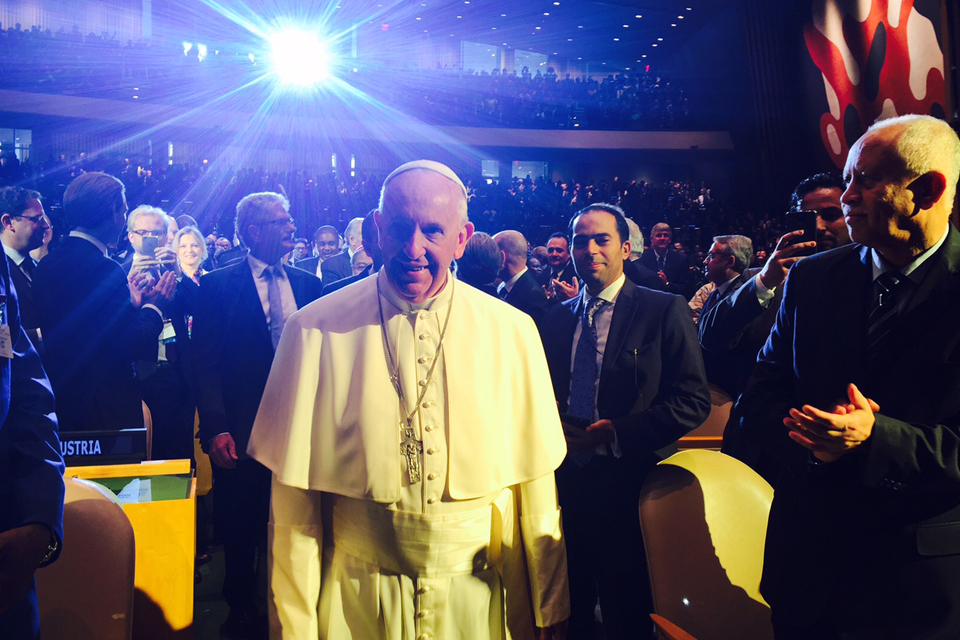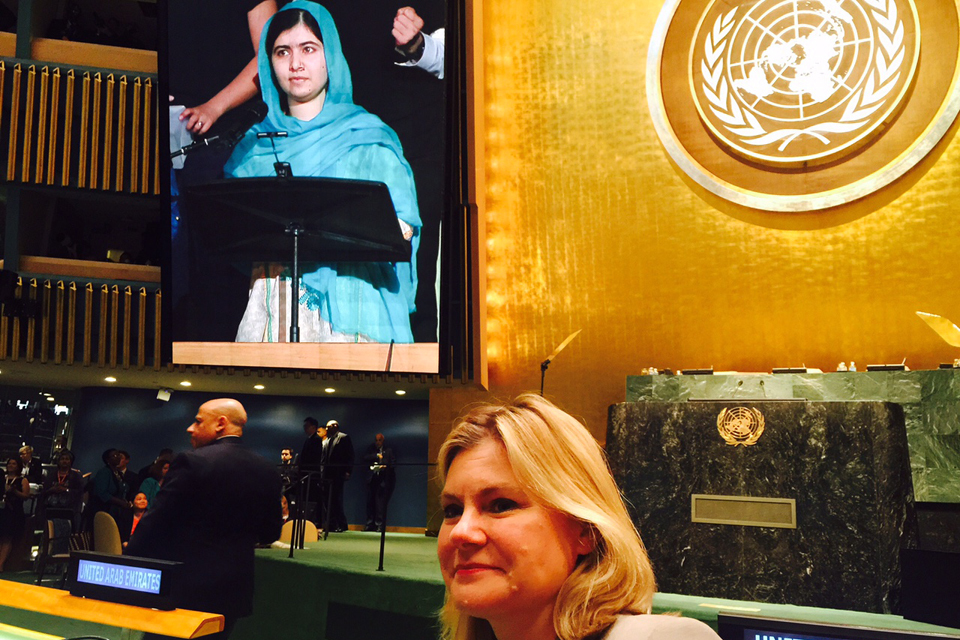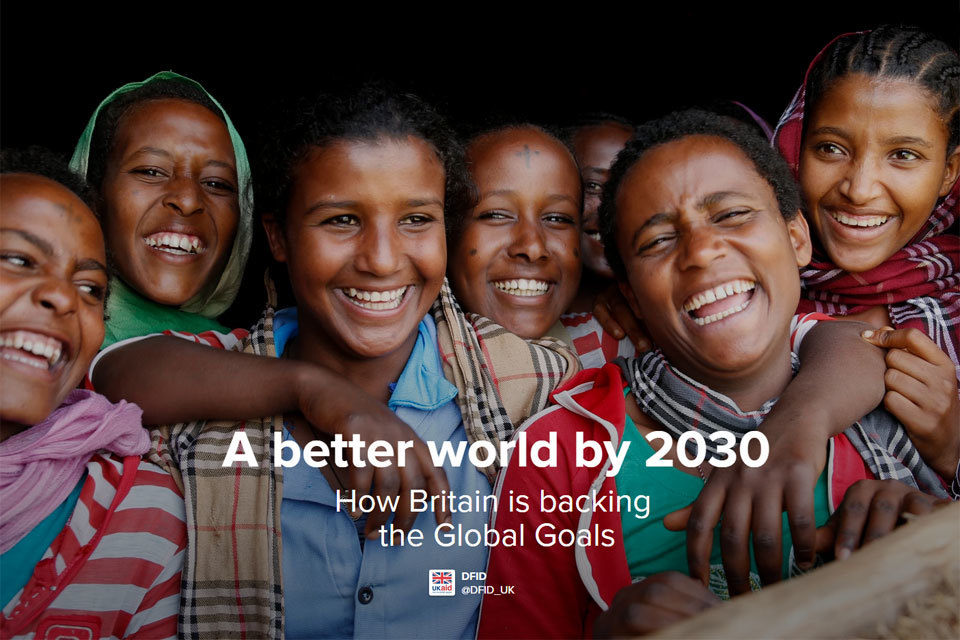Britain backs the Global Goals for Sustainable Development
The new UN goals are a "major landmark in our fight against global poverty", says Development Secretary Justine Greening.

United Nations. Picture: UN Photo
The United Nations General Assembly has formally adopted the Global Goals - a new global framework of 17 goals and 169 targets to wipe out poverty, fight inequality and tackle climate over the next 15 years.
Britain has officially backed the UN framework, titled: “Transforming Our World: the 2030 Agenda for Sustainable Development”.
The new goals build on the progress of the Millennium Development Goals (MDGs) set in 2000 – which have helped to halve poverty and improve living standards around the world over the past 15 years.
The aim of the Global Goals – also called the Sustainable Development Goals – is to finish the job of the MDGs over the next 15 years.
International Development Secretary Justine Greening was in the General Assembly along with UK youth delegates Arifa Aleem and Ronagh Craddock to witness the historic moment which was introduced by speakers including Pope Francis, UN Secretary General Ban Ki-moon and Malala Yousafzai.

Pope Francis at the opening of the UN General Assembly. Picture: Zoe Paxton/DFID

Justine Greening watches Malala addressing the UN General Assembly. Picture: Zoe Paxton/DFID
Justine Greening said:
The UN’s new Global Goals are a major landmark in our fight against global poverty and people in the UK can be proud of Britain’s leading role in securing these goals.
The world now has the chance to end extreme poverty in the next 15 years. We know what works. The last goals drove some of the most dramatic improvements in living standards the world has ever seen. Countless families have had their lives transformed. A child in the developing world is now much more likely to be in school and much less likely to die before their fifth birthday.
We must now continue to play our part in helping people the poorest and most vulnerable to find stability, prosperity and opportunity. This is not just the right thing to do. It is firmly in Britain’s own long-term interests.
Video: What are the Global Goals?
The UK’s role in the Global Goals
INTERACTIVE: See how UK aid supports the Global Goals

A better world by 2030
Over the past 3 years the UK has lobbied hard to make sure the Global Goals cover the areas not covered by the MDGs, to make sure nobody is left behind:
- The UK successfully pushed for a stand-alone goal on gender equality, including targets on early and forced marriage, female genital mutilation, and - against strong resistance - sexual and reproductive rights.
- To lock in the economic progress made since 2000 and enable people to work towards their own prosperity the UK has helped secure a goal on peace, security and good governance: the building blocks of stable, successful societies.
- The UK has played a key role in creating a set of goals that are universal and inclusive. These goals are focused on ending chronic poverty forever, for everyone, everywhere. The most marginalised and vulnerable people, whether disabled, hard to reach or affected by conflict, will not be left behind.
British Prime Minister David Cameron played a leading role in developing the Global Goals as co-chair of the UN’s High Level Panel on the Post 2015 Development Agenda (HLP). At the General Assembly in New York, he led the UK’s call to governments, business and civil society to make sure the new Goals leave no one behind.
The UK will work to deliver goals in new and innovative ways, involving the best of British expertise through our health service, private sector and other government departments, through the hub of the Department for International Development.
The UK will continue to invest 0.7% of national income on aid and development and will continue to lobby for others to meet their aid obligations, including emerging and developing nations.
Find out more
Updates to this page
-
Global Goals officially adopted by UN General Assembly
-
First published.